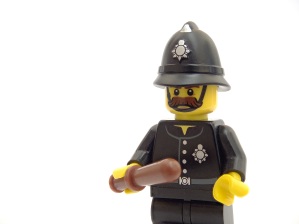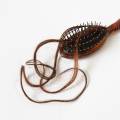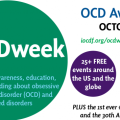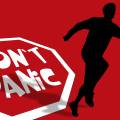Trichotillomania: Goodbye “Trich Police”, Hello HRT

To recover from trichotillomania (“trich”), retire ineffectual strategies and find a psychologist who practices habit reversal training (HRT).
Imagine that you have a rather large blemish right in the middle of your forehead. It’s not one of those pseudo-invisible blemishes that can only be perceived by you. Rather, it’s an angry, red mark that is readily apparent to nearly all the people with whom you interact throughout the day. Most people are polite enough and don’t acknowledge it out loud, although you can sometimes feel their lingering gazes. Others are less discrete, and you’re forced to have a short conversation about it. Neither situation is welcome; in fact, you’re beginning to wish that you had just stayed at home.
Now imagine that multiple times throughout the day, a well-meaning person gives you advice on skin care. At first maybe this advice is welcome, and you might even be exposed to some new ideas that you wouldn’t have thought of on your own. But suppose this advice continues to come again…and again…and again. It really doesn’t take very long before you come to resent this well-intentioned advice, and you’re going out of your way to avoid this person.
Sadly, similar situations play out almost daily for many individuals with trichotillomania, or “trich”. To be clear, trichotillomania has nothing to do with blemishes; it’s an impulse-control disorder associated with compulsive hair pulling. However, just as in the example above, trich causes individuals to receive unwanted scrutiny of their physical appearance. In the case of trich, this might be a bald patch on the scalp, eyelashes, eyebrows, or another part of the body. Not surprisingly, many individuals with trich feel embarrassed or ashamed of how they look, and they often find it difficult to explain away their hair loss in a way that doesn’t draw additional unwelcome attention to the problem. Moreover, similar to the example above, just as with a blemish, no one chooses to have trichotillomania.
As a psychologist in Palm Beach, Florida, I work closely with kids, teens, and adults throughout the greater Palm Beach, Fort Lauderdale, and Miami areas on strategies for recovering from trichotillomania. For parents and loved ones of individuals with trich, it is very easy to fall into the role of “Trich Police”. It’s not uncommon for some parents to inspect their children’s scalp/eyebrows/eyelashes daily in efforts to monitor the condition. Additionally, there is often an overabundance of advice, criticism, and questioning of the trich-sufferer’s willpower and motivation to change. In most cases, unless these strategies have been advocated by the individual affected by trich, such procedures are ill-advised. They will often fail to decrease hair-pulling behaviors and will instead (in most cases) increase household conflict.
If you, or someone you love, has been affected by trichotillomania, retire these ineffectual strategies. Equip yourself with more knowledge about the condition and find a therapist who practices habit reversal training (HRT). Research studies indicate that HRT is the most effective way to treat trich. Habit reversal training will require patience, time, and hard work on everyone’s part, but as opposed to time spent working for the Trich Police, it’s effort well-spent.
If you would like to receive email reminders about upcoming support groups, you can access our sign-up form here.
Questions? Comments? Sound off below.
Want Updates about New Content?
Follow Me!
Follow @drstevenseay












I didn’t know what I had done throughout my childhood was even a real disorder until reading this… Starting when I was about 10 years old, I would constantly have intense urges to twist small strands of my hair into a knot and pull it out. Kids at school made fun of me and said I was “going bald”. I dealt with this off and on for many years of my childhood. Then it went away by the time I was in my mid-teens. Now as an adult, I have urges of the same intensity, but now its with biting my fingernails, often to the point that they bleed. Do you think I have outgrown Trichotillomania? Or do you think I am simply manifesting Trichotillomania in different ways, like biting my nails (and many other involuntary behaviors that I also experience)?
I have been to all sorts of therapists for my daughter since she was 8 years old and none of the treatment options have helped? We even holistic therapy, equestrian therapy, play therapy, CBT, and no one seems to have had much experience with Trich to begin with….so this is SOOOOO EXCITING to see that there is a psychologist in Florida to HELP with this little known issue that my FAMILY has been dealing with, my heart breaks in a million pieces not being able to take her shame away, or her anxiety, her fear of disappointing her family by not controlling it. I look forward to subscribing to see if this means of therapy would possibly work for her.
-hopeful